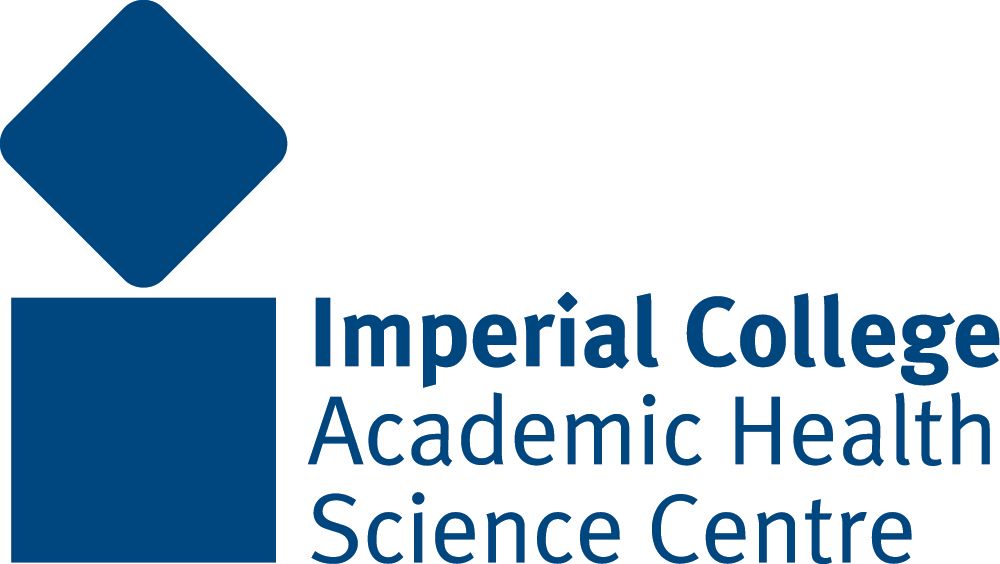Humans of health research
Interviews with researchers and patients working together to improve healthcare
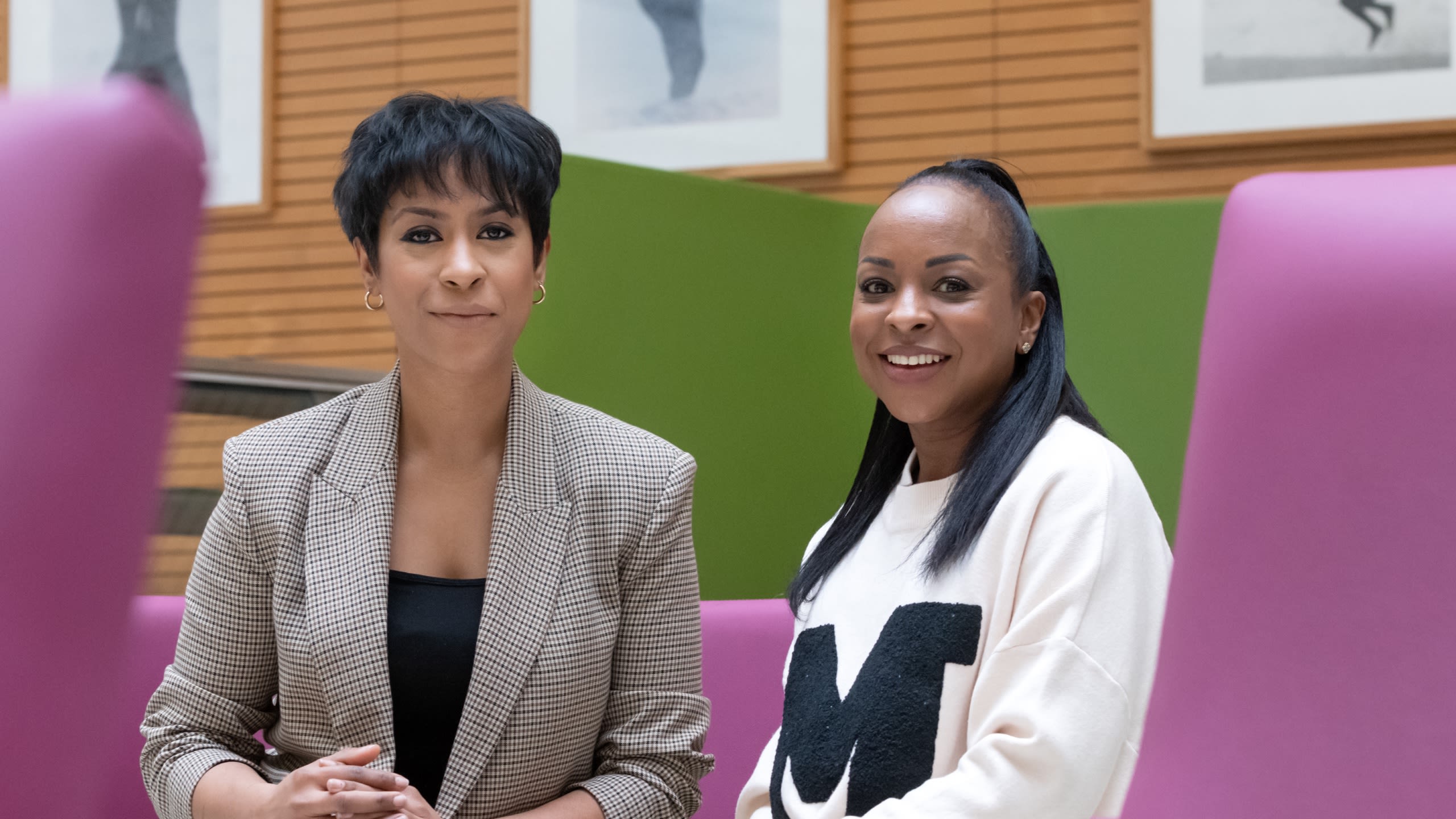
Healthcare research conducted by Imperial’s clinical academics is saving lives, improving patients' health outcomes and transforming NHS services.
To celebrate the extraordinary work of our clinical researchers Imperial College Academic Health Science Centre has launched an online photography exhibition to spotlight some of Imperial’s clinical researchers and their innovative work. It also features the patients who have benefited, and whose experiences and input have influenced and inspired the research.
Covering a broad range of medical specialities, each portrait highlights what motivates these hardworking staff as well as demonstrating why their research is vital.
In this feature, the eleventh in the Humans of Health Research series, we hear from a Haematology Specialist Registrar and her patient on research in the area of bleeding and clotting disorders, as well as their involvement in a project to raise awareness of the mental and physical impacts of sickle cell disease - a group of inherited health conditions that affect the red blood cells. We also hear from a PhD candidate on her work to develop a new type of imaging technique for brain tumours.
Dr Christina Crossette-Thambiah
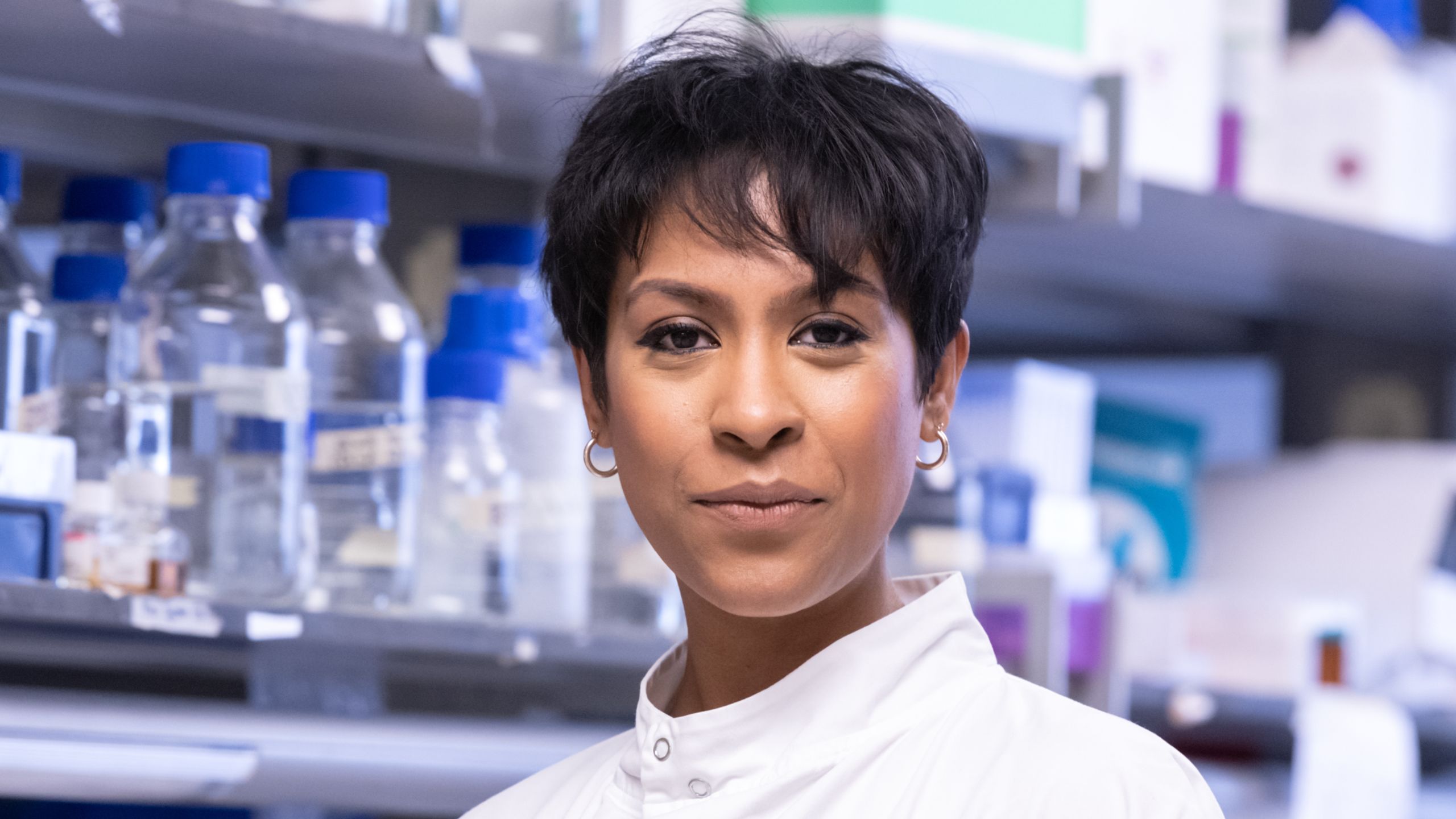
Dr Christina Crossette-Thambiah is a Haematology Specialist Registrar at Imperial College Healthcare NHS Trust and a PhD student at Imperial College London. Her research is in the area of bleeding and clotting disorders.
Blood thinners, known as anticoagulants, prevent blood clots and reduce the risk of serious conditions such as strokes and heart attacks; but they can have the undesirable side effect of excessive bleeding. Dr Crossette-Thambiah's research is focussed on agents used to reverse this problem when life-threatening bleeding occurs.
She is also involved in the Invisible Warrior project, which aims to raise awareness of sickle cell disease - a genetic disease that affects the red blood cells in the body and is particularly common in Black people.
“The sickle cell community is one that has suffered discrimination on various levels. It’s a disease that disproportionally affects Black people and research into it has been chronically underfunded.
“I'm a Londoner through and through. I have grown up in both south London and east London in a single-parent household for most of my younger years. It was not always easy for us, but my mum worked incredibly hard and sacrificed a lot to help me achieve my goals.
"When I got into medical school at Imperial, it felt massive! I owe my mum a huge amount – she has allowed me to grow into the woman I want to be and supported me with every endeavour.
“Starting medical school felt like I’d entered a whole other world. It was hugely different to where I’d come from and I didn’t always feel like I belonged, I felt like an imposter. But Imperial has been fantastic. I had to work incredibly hard to get through to the other side, but it has this ethos of academia that’s really stuck with me. Research isn’t an essential part of medicine but at Imperial it was ingrained in me, and this is what really drove me to do a PhD.
“Haematology is a fantastic and niche specialty, and my PhD has really allowed me to devote time to my specific area of interest. The clinicians I have worked with - especially Professor Mike Laffan, Professor of Haemostasis and Thrombosis at Imperial College London and Consultant Haematologist at Imperial College Healthcare NHS Trust – have been great mentors and shown me that an appreciation of science and evidence reflects in your clinical practice and ultimately, I think it makes you a better doctor.
"When I got into medical school at Imperial, it felt massive! I owe my mum a huge amount – she has allowed me to grow into the woman I want to be and supported me with every endeavour.
“Since starting my PhD, I've gone from knowing what I was doing in clinical medicine to knowing absolutely nothing in science! Thankfully, my supervisor Dr Josephine Ahnström, Senior Lecturer in Haematology in the Centre for Haematology at Imperial College London, has been really supportive. You think research might be isolating but it’s very much collaborative.
"Research achievements are rarely made in isolation. And you don’t have to be this super cerebral, highly academic person to do research. It’s more about patience. It’s more about attention to detail.
“It’s built my confidence too. I can push myself to do these kinds of things and believe that somebody like me, someone from my background and a woman of colour, can be in this academic space. And with this confidence I’ve been able to be more vocal about issues that matter to me – particularly around race and health equity.
“The COVID-19 pandemic was a real driving force behind this. We’ve known for a long time that there are differences in health outcomes and life expectancies between various racial and ethnic groups. But the COVID-19 pandemic really brought these racial disparities to light where death rates were highest among people of Black and Asian ethnic groups.
“Much research has gone into delineating the biological ramifications of race but what is clear is that is that racial health inequality is rooted in the social determinants of health and that’s well supported by the literature. That includes healthcare access, income, education, wealth gaps, housing and systemic discrimination.
"And it wasn't just patients being affected - doctors and nurses from ethnic minority groups were at greater risk from COVID and many lost their lives during that time.
"An Imperial report found that Black and Asian staff represent 21 per cent of the NHS workforce but accounted for 63 per cent of deaths among health and social care workers during the first wave of the pandemic.
“That time really broke me, especially losing my colleagues. Going through the hell of it all made me realise that there was a need for me, as a woman of colour, to speak honestly about the harsh realities at play here.
“This is what brought about my work in the arena of sickle cell as well. It is a disease where red blood cells are unusually shaped, inhibiting their ability to transport oxygen around the body. This can cause severe pain in what’s known as a crisis, lasting days or even weeks. Sickle cell disease is a serious and lifelong health condition.
“The sickle cell community is one that has suffered discrimination on various levels. It’s a disease that disproportionally affects Black people and research into it has been chronically underfunded. As a London-based haematologist many of my patients have sickle cell disease as do some of my friends so it's been in my life for a long time.
As clinicians and academics it’s time to stand with our sickle cell patients, let their voices be heard and improve education around sickle cell.”
“Louisa Thompson is a patient of mine who has sickle cell disease. It has been really inspiring to work alongside her on the Invisible Warrior project. It aims to raise awareness of sickle cell disease and she speaks to medical students, the wider public and schools to achieve this.
"I’ve become involved in this now to share my own story and career journey and raise awareness of the importance of blood and bone marrow donation in minority ethnic groups. It’s so important but there’s misinformation out there about the process and safety.
“Louisa is incredible. She lives a full and beautiful life but has also experienced being bound to hospitals and healthcare professionals. As clinicians and academics it’s time to stand with our sickle cell patients, let their voices be heard and improve education around sickle cell.”
(Research) has built my confidence too. I can push myself to do these kinds of things and believe that somebody like me, someone from my background and a woman of colour, can be in this academic space.
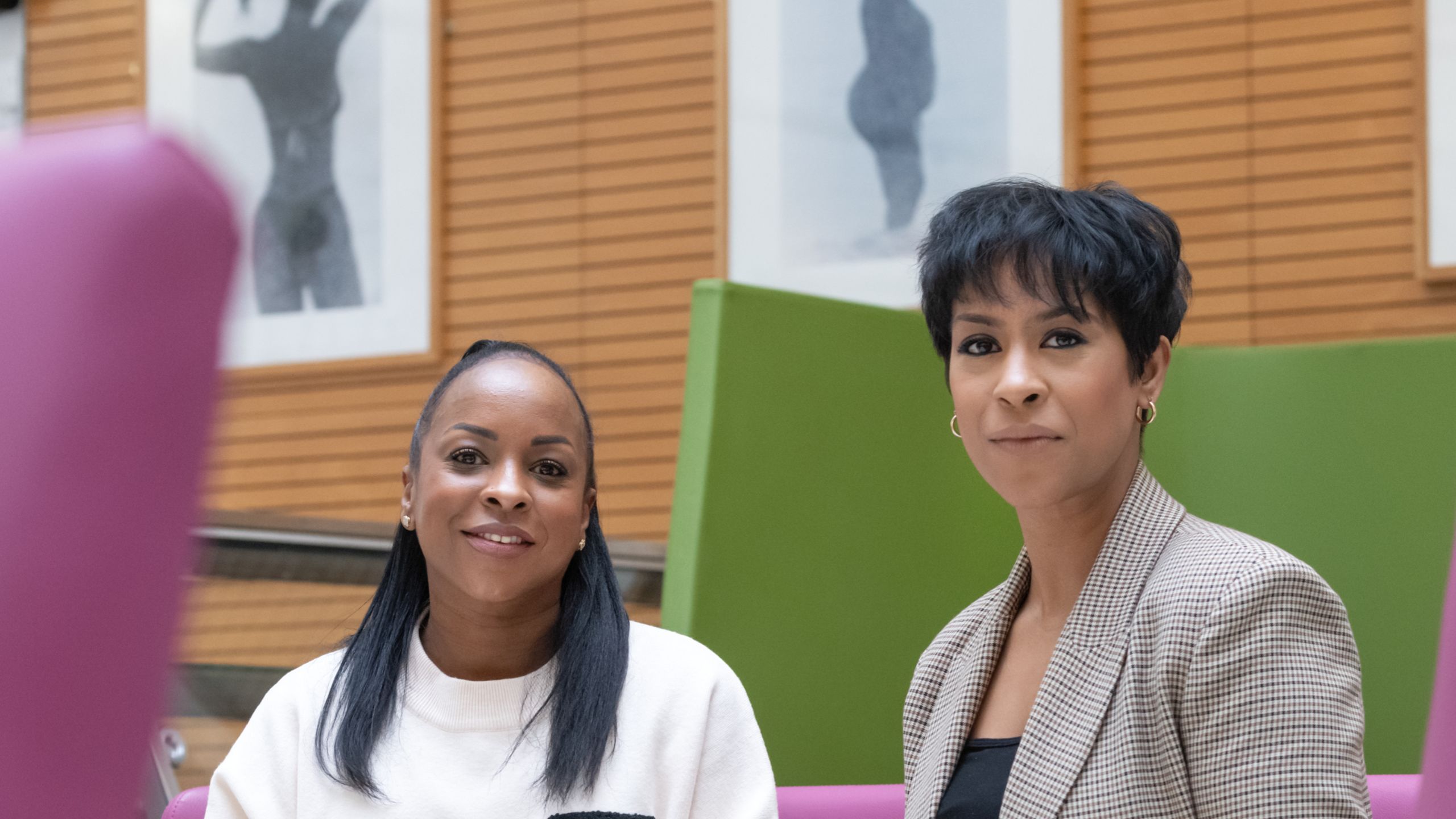
Louisa Thompson
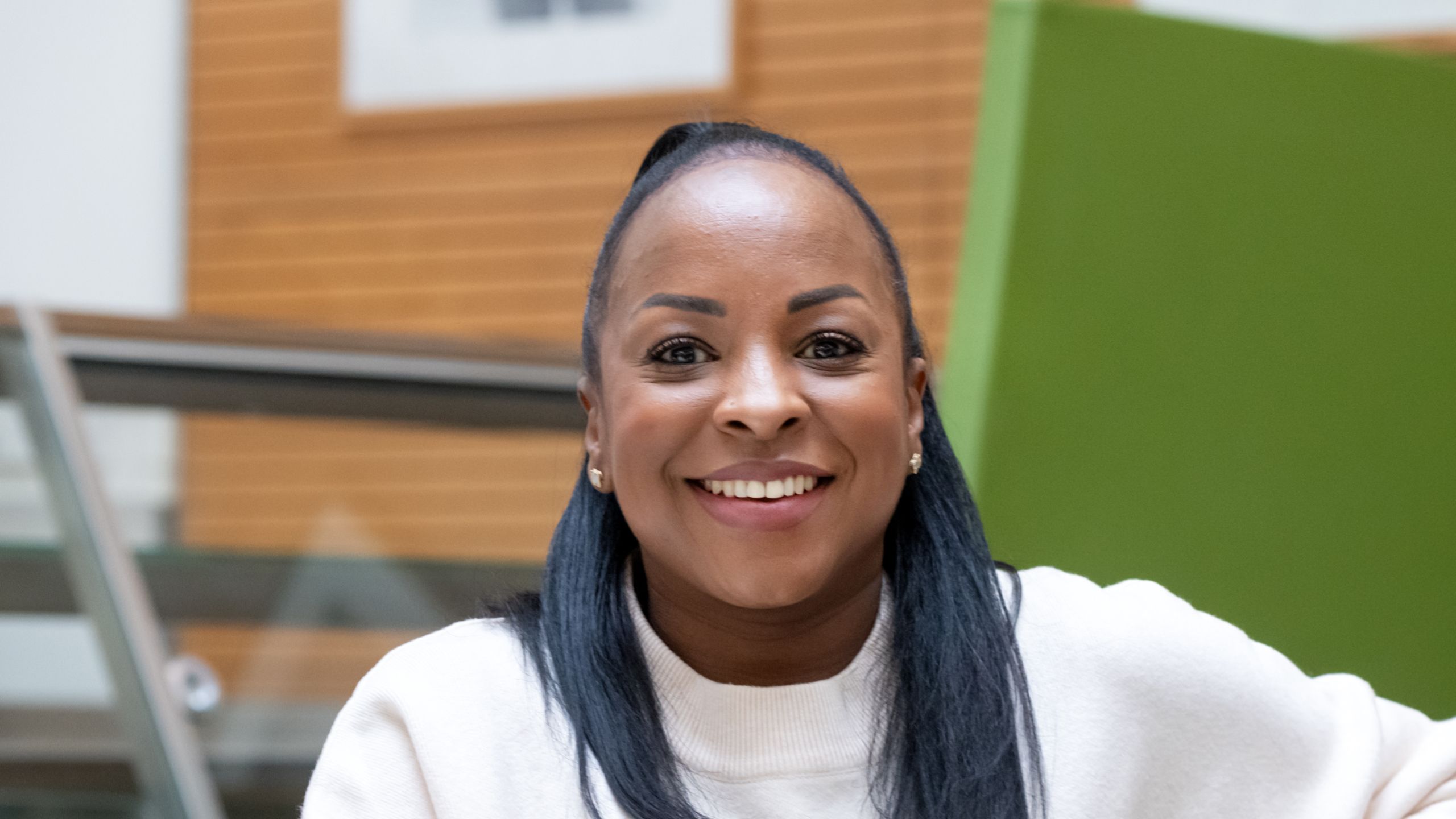
Louisa Thompson has sickle cell disease and launched an engagement project with Imperial in 2021 called Invisible Warrior. It aims to raise awareness of the disease and its impact on mental health.
A recent inquiry into avoidable deaths and poor-quality care for sickle cell patients identified serious failings and evidence of attitudes underpinned by racism.
The inquiry heard that awareness of sickle cell among healthcare professionals is low, with patients regularly having to educate healthcare professionals about the basics of their condition at times of significant pain and distress when attending A&E.
Through Invisible Warrior, Louisa has been working with Imperial Teaching Fellow Dr Linda van Keimpema to deliver workshops to medical students.
Louisa has also found that awareness of the disease is low amongst Black communities so has been engaging these groups, as well as local schools, to share her story and talk about the disease alongside haematologist and researcher Dr Christina Crossette-Thambiah.
In 2022, Louisa won the Imperial President’s Award for Excellence in Societal Engagement as an Inspirational Partner for her Invisible Warrior project. As part of the project, Louisa shares her experiences of living with sickle cell through events and school visits.
“There's a stigma around people with sickle cell and I think if people have a better understanding of what we actually go through, particularly the mental health side of things, I think people would change their perspective. Post-Traumatic Stress Disorder (PTSD) and anxiety play a big role in sickle cell. You're constantly anxious that you’re going to enter a crisis.
I’m proud that I’ve been able to speak my truth through the Invisible Warrior project.
“It gives me hope that people are starting to see that sickle cell – and other invisible illnesses - needs more exposure but even now, I feel judged when I tell people I have a disability. I’ve been told ‘you look fine!’ when I don’t feel fine at all.
“When I was first approached about the project, I didn’t actually think it would ever happen. But it did and I'm so glad. I still suffer with some impostor syndrome but the reality is - this is my story. This is how I live my life. This is my day-to-day and I've always wanted to be able to express that and be as open and transparent as possible.
“I’m proud that I’ve been able to speak my truth through the Invisible Warrior project. And it’s been great to have Christina involved. She’s relatable and so inspiring to a lot of the people we speak with because she’s had a really humble upbringing, is a woman of colour and has come so far to be a haematologist and now doing a PhD.
"I never thought I'd have a friend who’s a haematologist. It's quite bizarre, but it's amazing. We met in the clinic but our relationship has really developed through the project. I feel very safe and comfortable around her. I feel like she genuinely has my best interests at heart without stigmatising or stereotyping me.
“It gives me hope that people are starting to see that sickle cell – and other invisible illnesses - need more exposure.
“I never went to university and so working with Imperial and winning the award, I felt like I shouldn't be here. But doing this project, I’ve learnt that as long as you speak your truth and it comes from the heart, whatever you do, it will turn out alright. That’s the most important thing.”
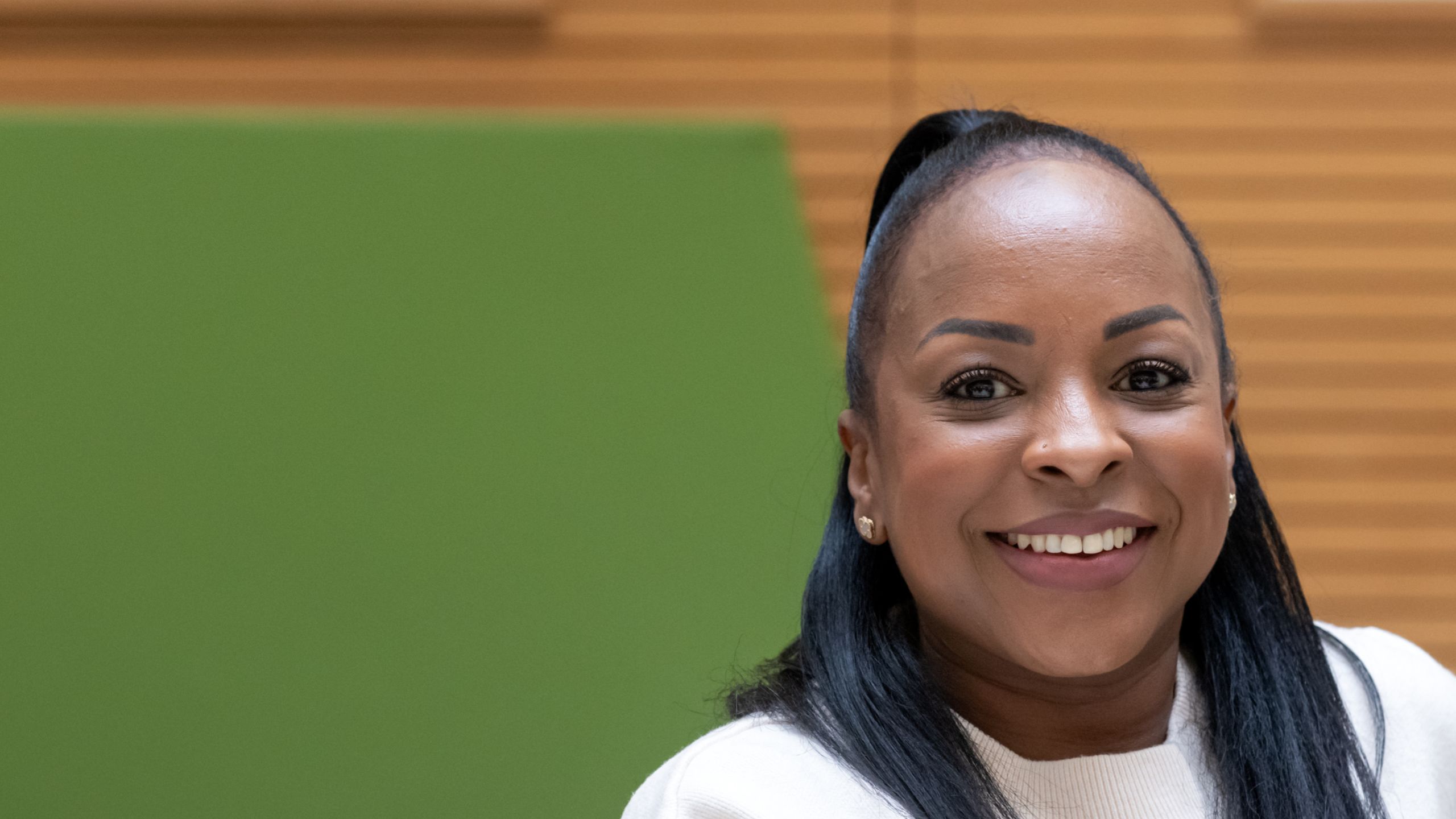
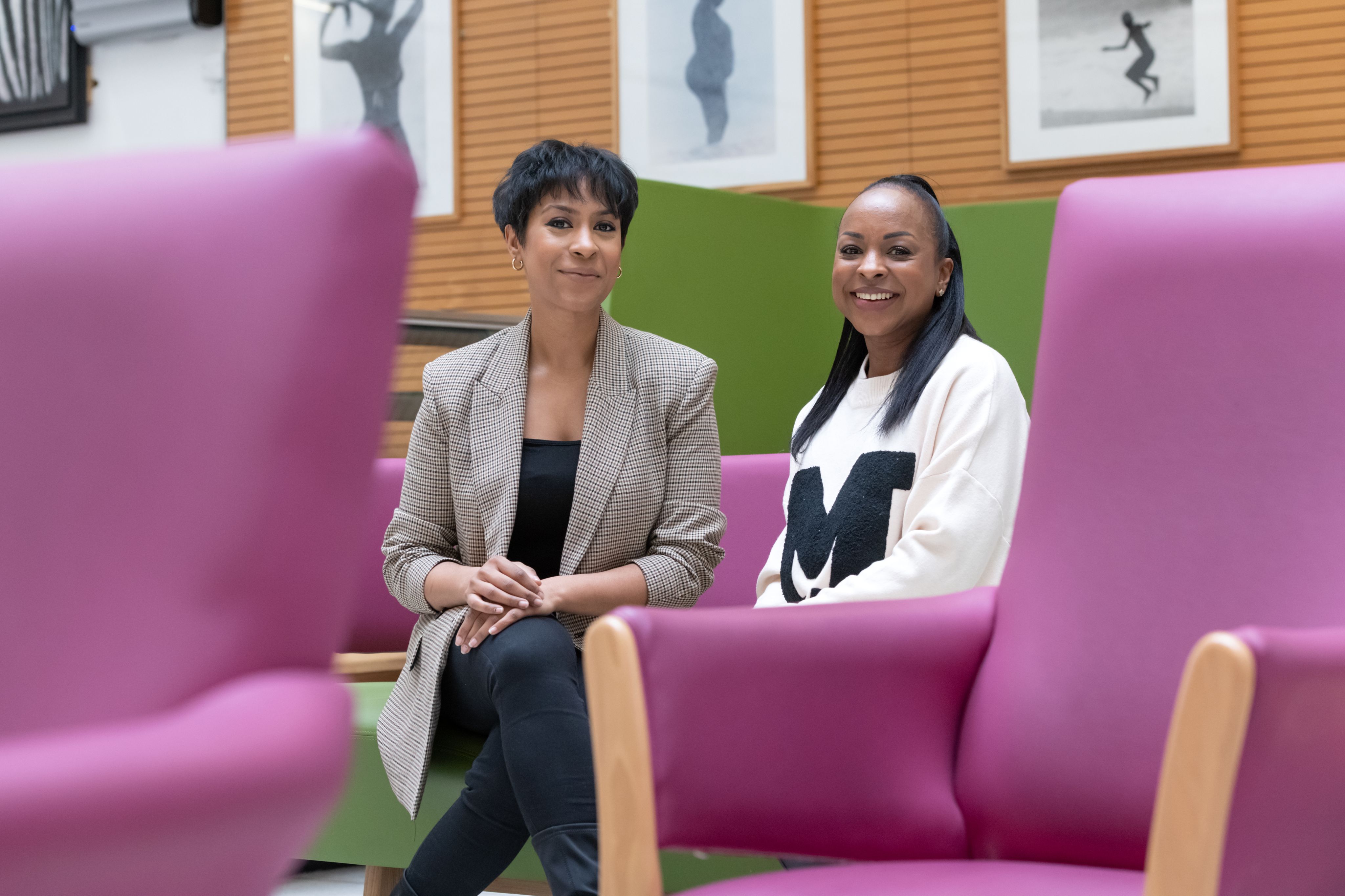
Simran Kukran
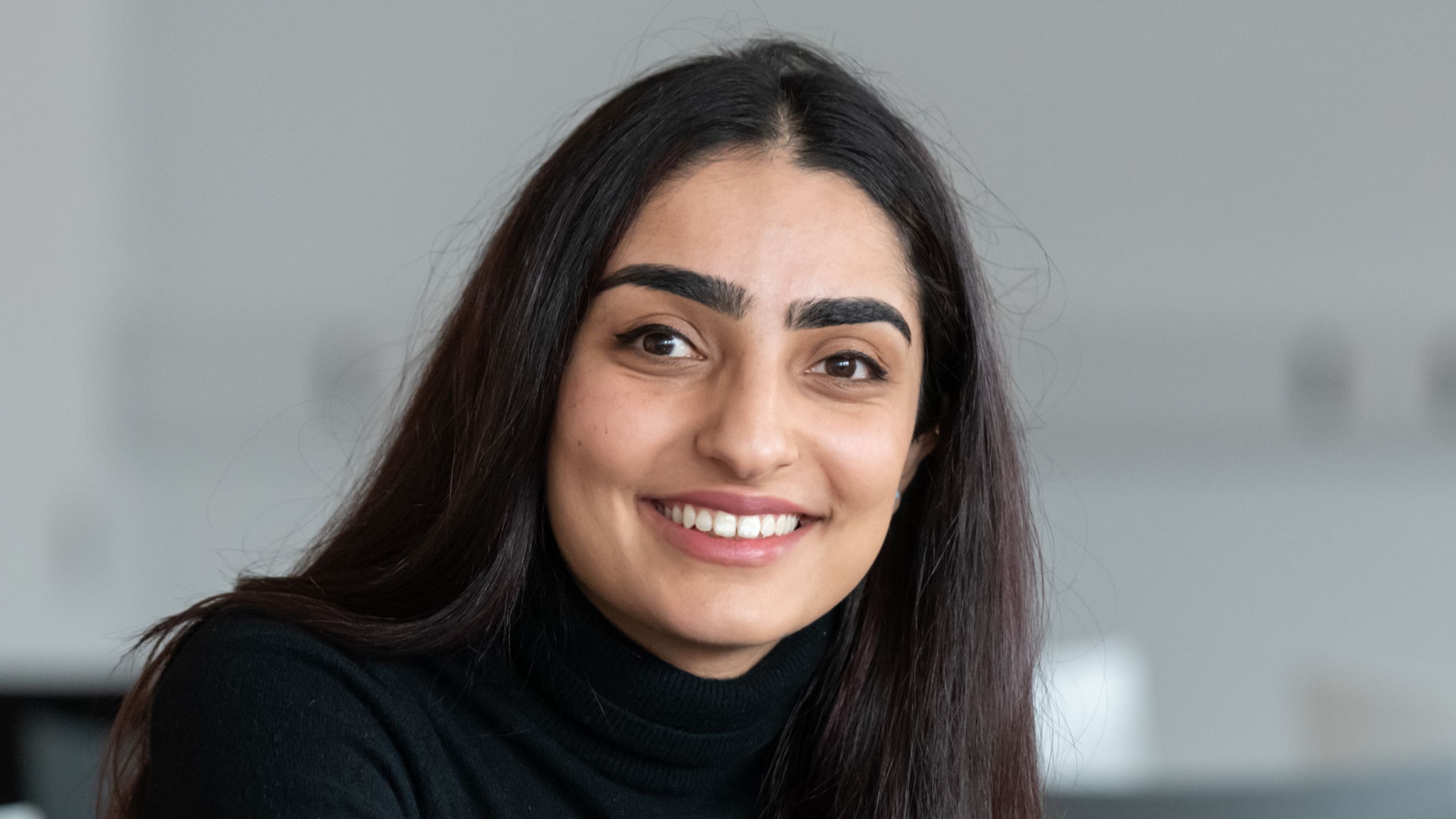
Simran Kukran is a PhD candidate in the Department of Bioengineering at Imperial College London and in the department of Radiotherapy and Imaging at The Institute of Cancer Research, London. She is working on magnetic resonance fingerprinting - a new type of imaging technique - for brain tumours.
“My goal is to develop magnetic resonance imaging (MRI) tools that give us more specific information about brain tumours. Brain tumours are difficult to treat and it is hard to predict how patients will respond to treatments. Even when treatment like radiotherapy has been administered, it is difficult to tell if it has actually been effective.
“My grandmother had a low-grade brain tumour, and after surgery and chemotherapy lived 10 years past her diagnosis. She passed away two years ago of an unrelated cause. But there are no words for what that ‘extra’ time I had with her means to me - and I can think of no better way to spend my time than to work towards others getting it too.
Physics was always my favourite subject at school, especially magnetism. I also find it hard to visualise things in my head, so I am fascinated by imaging.
“I work on magnetic resonance fingerprinting (MRF), which uses an MRI scanner to measure tissue properties in numbers - this is different to normal MRI techniques that only give an image.
"Because MRF gives us number measurements, it is hoped that it can give clinicians more information about brain tumours at the point of diagnosis, particularly about tumour aggressiveness. We also think it will be more sensitive to small changes and therefore make it easier to track tumour progression or treatment response.
I’ve been surprised how much it feels that research is about discipline, perseverance and confidence that things will eventually ‘work’.
“It is my job to analyse brain tumour patient data. We have scanned 11 healthy volunteers and 19 brain tumour patients. Some of the measurements generated are T1 and T2 values which provide important information about the structure and composition of tissues and can indicate the presence of certain conditions or diseases, such as tumours.
"One of our findings was that the T1 values from MRF were lower than expected, especially in white matter, so I am conducting physics experiments to find out why. This involves designing my own fingerprinting scan with collaborators at Siemens and testing it in healthy volunteers.
“Physics was always my favourite subject at school, especially magnetism. I also find it hard to visualise things in my head, so I am fascinated by imaging. I did my undergraduate degree in materials science and learned a lot about different characterisation techniques, and I wanted to apply this to the human body. MRI seemed a perfect fit for me.
It’s a huge privilege to work on interesting and important problems. It really is the best job in the world so you should jump at the chance if you get it.
“Research is hard though. There is a day every few months where we have a breakthrough and it is the best day ever but between those rare days, I’ve been surprised how much it feels that research is about discipline, perseverance and confidence that things will eventually ‘work’.
"Between breakthroughs I have been motivated by reminding myself how urgently we need these new technologies. I am so lucky to be surrounded by such talented, supportive and inspiring supervisors, colleagues and collaborators who are a joy to work with and have taught me so much.
“But above all, it’s a huge privilege to work on interesting and important problems. It really is the best job in the world so you should jump at the chance if you get it.
"It also comes with the added benefit of being surrounded by amazing researchers who will inspire and challenge you to be the best you can be. Don’t be afraid to ask for help because the beauty of research means you are not supposed to know the answer.”
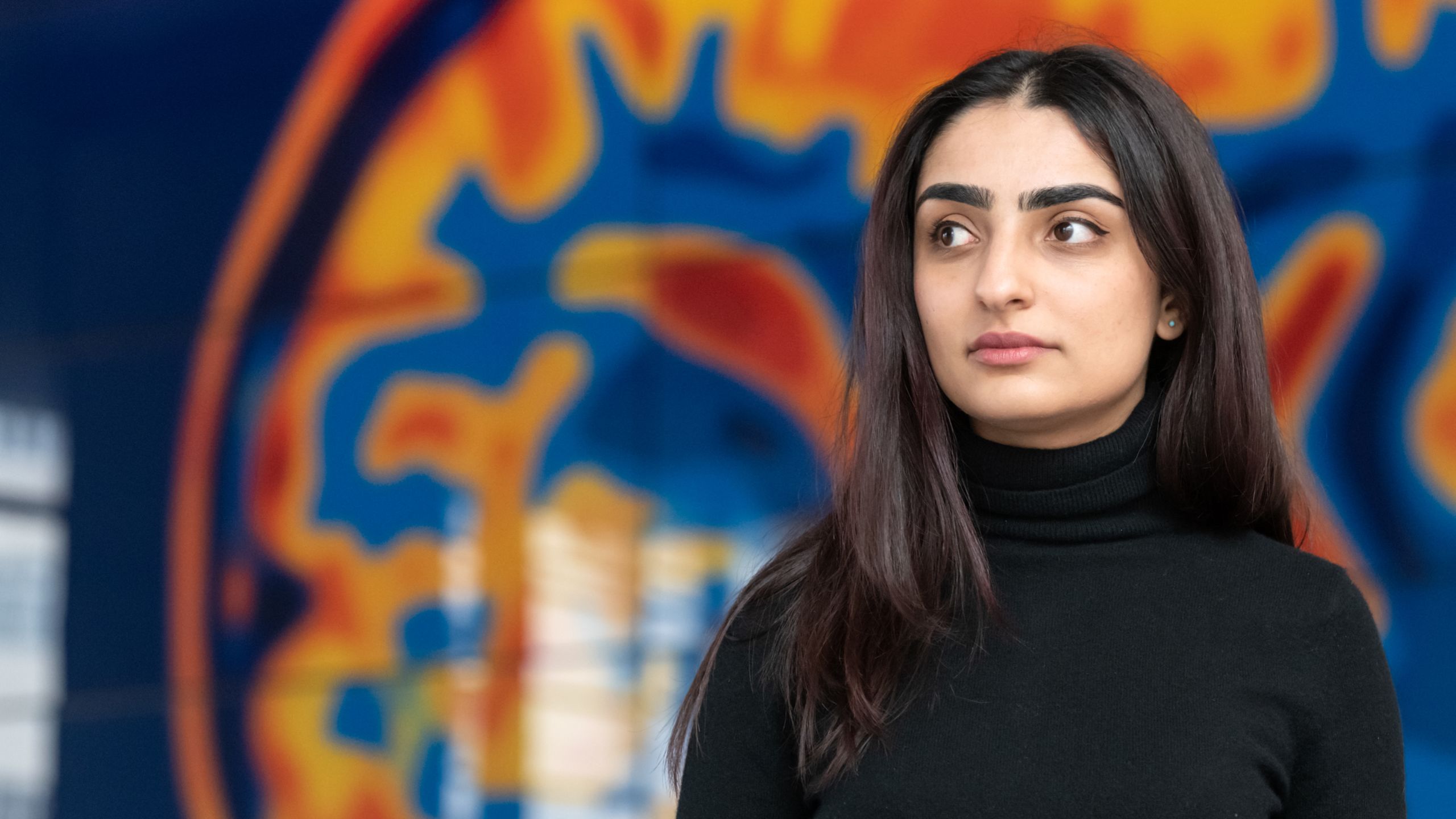
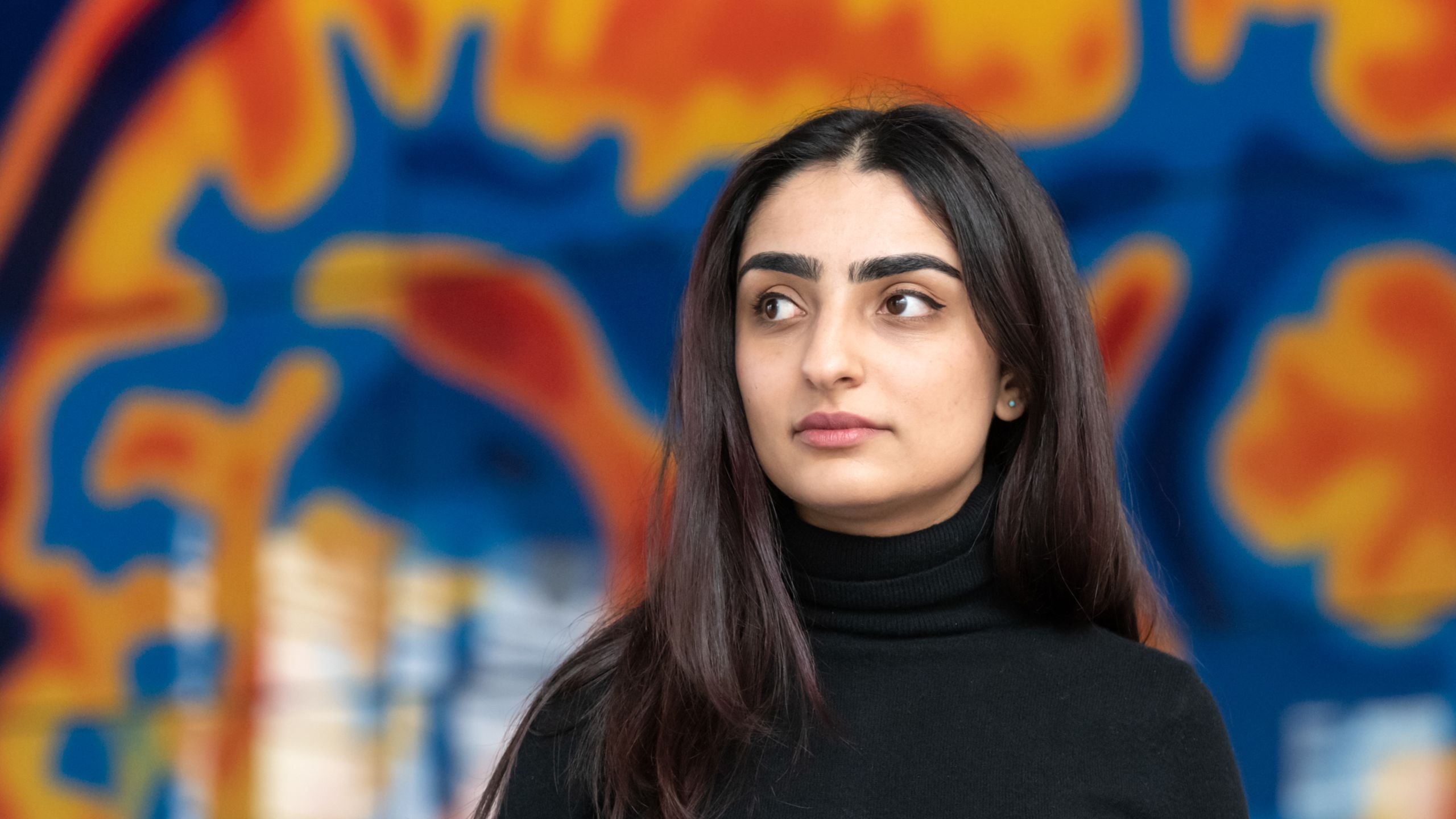
The Imperial College Academic Health Science Centre is a university-NHS partnership aiming to transform healthcare through research.


